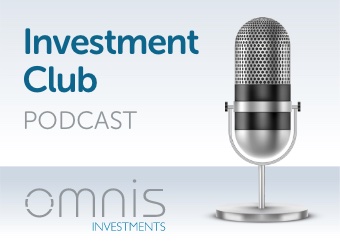End of tax year investments – how to maximise your allowances
Tuesday 14 February, 2023
Towards the end of the tax year, it is always worth looking at how best to consider investment opportunities that will maximise your tax allowance. These investments can come in different forms, so it is important to understand which will best fit your financial situation. To compliment the use of tax efficient investment vehicles, it is also important to top up pensions.
There are deadlines for making investments within the financial year. Speak to your financial adviser to find out the deadline dates and take advantage of tax efficient investment opportunities.
Tracy Dove, Financial Adviser and Mortgage Broker in Laindon, Basildon and Exeter explains two popular investment options as alternatives to paying higher rates of personal tax: ISAs and Pensions.
Individual Saving Accounts - ISAs
An Individual Savings Account, commonly referred to as an ISA, is often seen as a highly tax-efficient way to invest. There are a range of ISA investments available on the market including cash, funds, shares, gilts and bonds.
There is an ISA investment allowance of up to £20,000 in the year (2022-23 tax year). This can be divided into different types including cash, investment, innovative finance or lifetime ISAs. It is worth noting that each come with a range of conditions. Your financial adviser should discuss each different investment vehicle with you dependent on your financial and tax situation.
An important factor to consider with an ISA investment is that you will pay no income tax, tax on dividends or Capital Gains Tax (CGT) on the profits made from the investments.
Topping up your pension
A popular choice for an end of tax year investment is topping up your pension. If you are in full time employment and contributing into your company pension scheme, you should review how much you have paid in.
It is possible that your employer may match your contributions, up to a particular limit. It would be wise to take advantage of any opportunity if you can.
The government’s tax relief on pension contributions provides up to 100% of your annual earnings. Additionally, the higher the income tax you pay, the more the tax relief on pension contributions will be. Read more about Tax on your private pension contributions.
For example, for a basic rate taxpayer, every £800 you pay in to your pension will be boosted to £1,000 from the tax office. Read more about tax relief on pension contributions.
Higher or additional rate taxpayers can claim back up a further 20%, or 25% in addition to the 20% basic rate tax relief, via your yearly tax return.
For the majority of people, the tax relief is offered on contributions to a value of up to £40,000 per tax year. If your contributions are lower than the £40,000 cap, then the relief will be 100% of your income.
High earner will see their annual allowance tapered if they earn more than £200,000 per year and their income and pension payments made on their behalf go above £240,000.
For those that do not pay tax, they are still eligible to have basic rate tax relief on any pension contributions. The upper limit paid into a pension from a non-taxpayer is £2,880 a year. This is the equivalent to a £3,600 contribution once you have accounted for the tax relief available.
What not to do with end of tax year investments
There are some areas to avoid when it comes to investing at the end of the tax year.
Firstly, the ISA regulations state that you cannot pay into two of the same types of ISA within the year. For example, you would not be able to open and pay into two cash ISAs at the same time.
Secondly, you do not need to invest the full amount of the ISA in a single transaction. You can open the ISA account and can add to it over time and gradually grow its value, until it reaches its limit.
Thirdly, when boosting your pension, you must ensure you have thought about the Lifetime Allowance. The Lifetime Allowance is the maximum amount you can have within all your pension savings, without having to pay additional tax when you take out the money. This total is currently set at £1,073,100.
Tracy Dove, Financial Adviser and Mortgage Broker in Basildon and Exeter said:
“If you are in a position to consider an end of tax year investment, it is important to seek professional financial advice first. Each investment type may have some complex elements that need to be considered before investing your money. This advice will ensure you make the most fitting decisions for your individual circumstances.”
Tracy continued: “Thomas Oliver have been providing professional and impartial financial advice to our clients for many years. We are in the ideal position to help anyone looking for that right investments, so would recommend they call our team for the advice they need”.
If you would like to find out more about the end of financial year investments that would be best for you, then please call our team on 01707 872000 to book your appointment.






